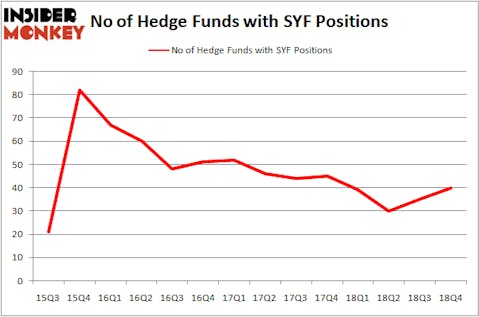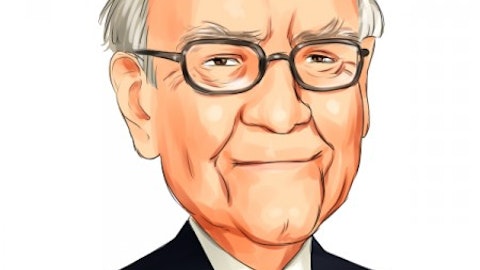Hedge funds are known to underperform the bull markets but that’s not because they are bad at investing. Truth be told, most hedge fund managers and other smaller players within this industry are very smart and skilled investors. Of course, they may also make wrong bets in some instances, but no one knows what the future holds and how market participants will react to the bountiful news that floods in each day. Hedge funds underperform because they are hedged. The Standard and Poor’s 500 Index returned approximately 13.1% in the first 2.5 months of this year (including dividend payments). Conversely, hedge funds’ top 15 large-cap stock picks generated a return of 19.7% during the same 2.5-month period, with 93% of these stock picks outperforming the broader market benchmark. An average long/short hedge fund returned only 5% due to the hedges they implement and the large fees they charge. Our research covering the last 18 years indicates that investors can outperform the market by imitating hedge funds’ stock picks rather than directly investing in hedge funds. That’s why we believe it isn’t a waste of time to check out hedge fund sentiment before you invest in a stock like Synchrony Financial (NYSE:SYF).
Is Synchrony Financial (NYSE:SYF) a healthy stock for your portfolio? The smart money is buying. The number of bullish hedge fund positions improved by 5 lately. Our calculations also showed that SYF isn’t among the 30 most popular stocks among hedge funds. SYF was in 40 hedge funds’ portfolios at the end of the fourth quarter of 2018. There were 35 hedge funds in our database with SYF holdings at the end of the previous quarter.
So, why do we pay attention to hedge fund sentiment before making any investment decisions? Our research has shown that hedge funds’ small-cap stock picks managed to beat the market by double digits annually between 1999 and 2016, but the margin of outperformance has been declining in recent years. Nevertheless, we were still able to identify in advance a select group of hedge fund holdings that outperformed the market by 32 percentage points since May 2014 through March 12, 2019 (see the details here). We were also able to identify in advance a select group of hedge fund holdings that underperformed the market by 10 percentage points annually between 2006 and 2017. Interestingly the margin of underperformance of these stocks has been increasing in recent years. Investors who are long the market and short these stocks would have returned more than 27% annually between 2015 and 2017. We have been tracking and sharing the list of these stocks since February 2017 in our quarterly newsletter. Even if you aren’t comfortable with shorting stocks, you should at least avoid initiating long positions in our short portfolio.
We’re going to take a peek at the latest hedge fund action encompassing Synchrony Financial (NYSE:SYF).
How have hedgies been trading Synchrony Financial (NYSE:SYF)?
At the end of the fourth quarter, a total of 40 of the hedge funds tracked by Insider Monkey were long this stock, a change of 14% from the second quarter of 2018. On the other hand, there were a total of 39 hedge funds with a bullish position in SYF a year ago. With the smart money’s positions undergoing their usual ebb and flow, there exists an “upper tier” of key hedge fund managers who were boosting their stakes substantially (or already accumulated large positions).
The largest stake in Synchrony Financial (NYSE:SYF) was held by Berkshire Hathaway, which reported holding $488 million worth of stock at the end of September. It was followed by Citadel Investment Group with a $421 million position. Other investors bullish on the company included Baupost Group, King Street Capital, and AQR Capital Management.
As one would reasonably expect, key money managers were leading the bulls’ herd. Renaissance Technologies, managed by Jim Simons, established the largest position in Synchrony Financial (NYSE:SYF). Renaissance Technologies had $69.1 million invested in the company at the end of the quarter. Daniel Johnson’s Gillson Capital also made a $19.3 million investment in the stock during the quarter. The other funds with brand new SYF positions are Richard Rubin’s Hawkeye Capital, Matthew Tewksbury’s Stevens Capital Management, and Matthew Knauer and Mina Faltas’s Nokota Management.
Let’s go over hedge fund activity in other stocks – not necessarily in the same industry as Synchrony Financial (NYSE:SYF) but similarly valued. We will take a look at Deutsche Bank Aktiengesellschaft (NYSE:DB), Shinhan Financial Group Co., Ltd. (NYSE:SHG), Teva Pharmaceutical Industries Limited (NYSE:TEVA), and Expedia Group, Inc. (NASDAQ:EXPE). This group of stocks’ market valuations are similar to SYF’s market valuation.
| Ticker | No of HFs with positions | Total Value of HF Positions (x1000) | Change in HF Position |
|---|---|---|---|
| DB | 14 | 1068433 | 5 |
| SHG | 7 | 22057 | 5 |
| TEVA | 35 | 2006034 | -1 |
| EXPE | 39 | 2211902 | 2 |
| Average | 23.75 | 1327107 | 2.75 |
View table here if you experience formatting issues.
As you can see these stocks had an average of 23.75 hedge funds with bullish positions and the average amount invested in these stocks was $1327 million. That figure was $2307 million in SYF’s case. Expedia Group, Inc. (NASDAQ:EXPE) is the most popular stock in this table. On the other hand Shinhan Financial Group Co., Ltd. (NYSE:SHG) is the least popular one with only 7 bullish hedge fund positions. Compared to these stocks Synchrony Financial (NYSE:SYF) is more popular among hedge funds. Our calculations showed that top 15 most popular stocks among hedge funds returned 19.7% through March 15th and outperformed the S&P 500 ETF (SPY) by 6.6 percentage points. Hedge funds were also right about betting on SYF as the stock returned 43% and outperformed the market by a huge margin.
Disclosure: None. This article was originally published at Insider Monkey.





